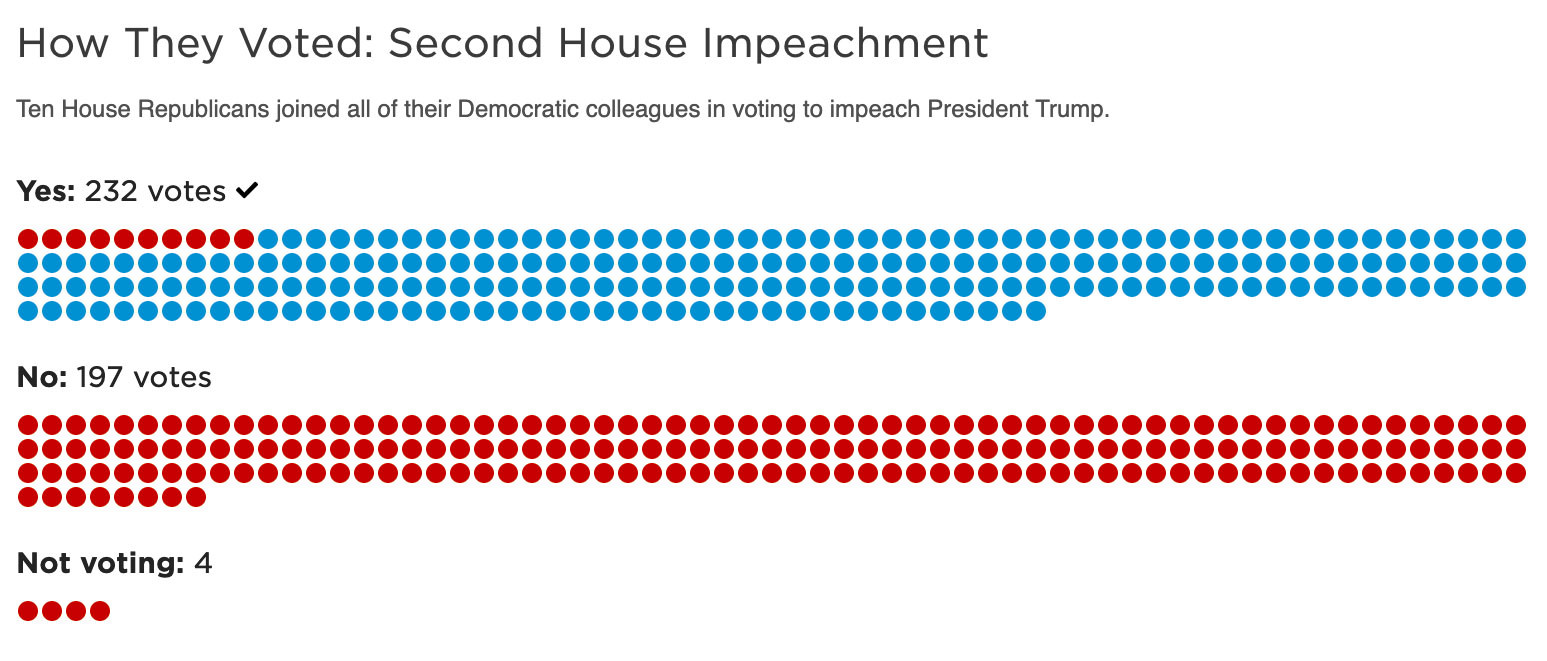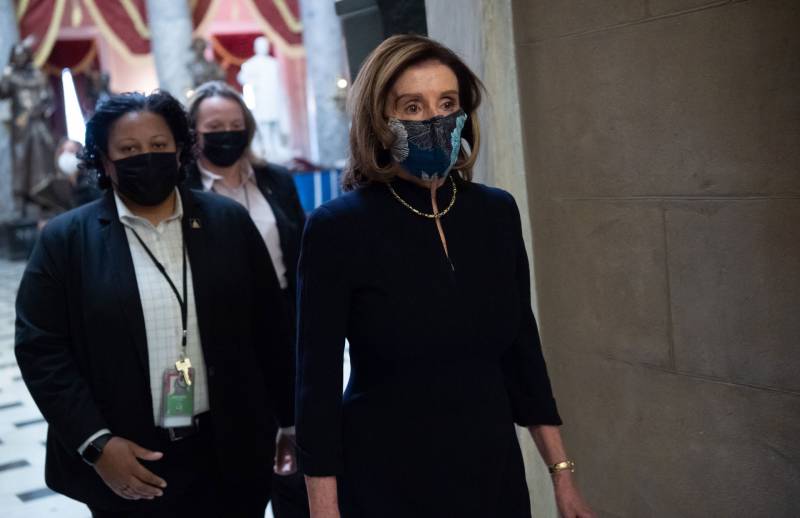Updated at 5:50 p.m. ET
The House of Representatives has impeached President Trump for the second time in 13 months — making him the only president to receive the rebuke twice. Despite the historic nature of a twice-impeached, one-term president, it is extremely unlikely that Trump will be removed from office through impeachment, as the Senate will not reconvene until Jan. 19 — the day before President-elect Joe Biden is to be inaugurated.
During the last House vote, in December 2019, all Republicans opposed the move, arguing that the effort was politically driven. But on Wednesday, 10 GOP lawmakers joined Democrats in pointing the finger at the president for using rhetoric that helped spark the violent insurrection at the Capitol a week ago that left at least five dead.
In total, 222 Democrats and 10 Republicans voted to impeach the president.

The next step in the process is transmitting the article of impeachment to the Senate, then preparation for a Senate trial. But Majority Leader Mitch McConnell will not consent to bringing the Senate back earlier than next Tuesday.
"I believe it will best serve our nation if Congress and the executive branch spend the next seven days completely focused on facilitating a safe inauguration and an orderly transfer of power to the incoming Biden Administration," McConnell said in a statement.
"I am grateful to the offices and institutions within the Capitol that are working around the clock, alongside federal and local law enforcement, to prepare for a safe and successful inauguration at the Capitol next Wednesday."
That tight timeline makes in nearly impossible for the Senate to convict and remove Trump from office before a new president is sworn in. Regardless, a Senate trial is expected.
The impeachment resolution on the House floor Wednesday, which passed 232-197, consisted of an article citing "incitement of insurrection."
The resolution states: "President Trump gravely endangered the security of the United States and its institutions of Government. He threatened the integrity of the democratic system, interfered with the peaceful transition of power, and imperiled a coequal branch of Government. He thereby betrayed his trust as President, to the manifest injury of the people of the United States."

9(MDAxOTAwOTE4MDEyMTkxMDAzNjczZDljZA004))
